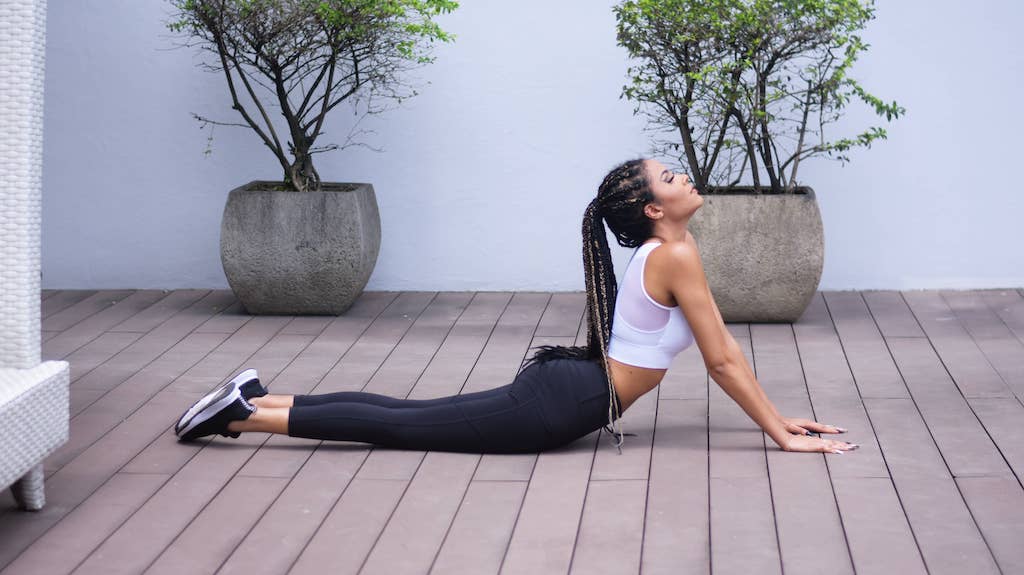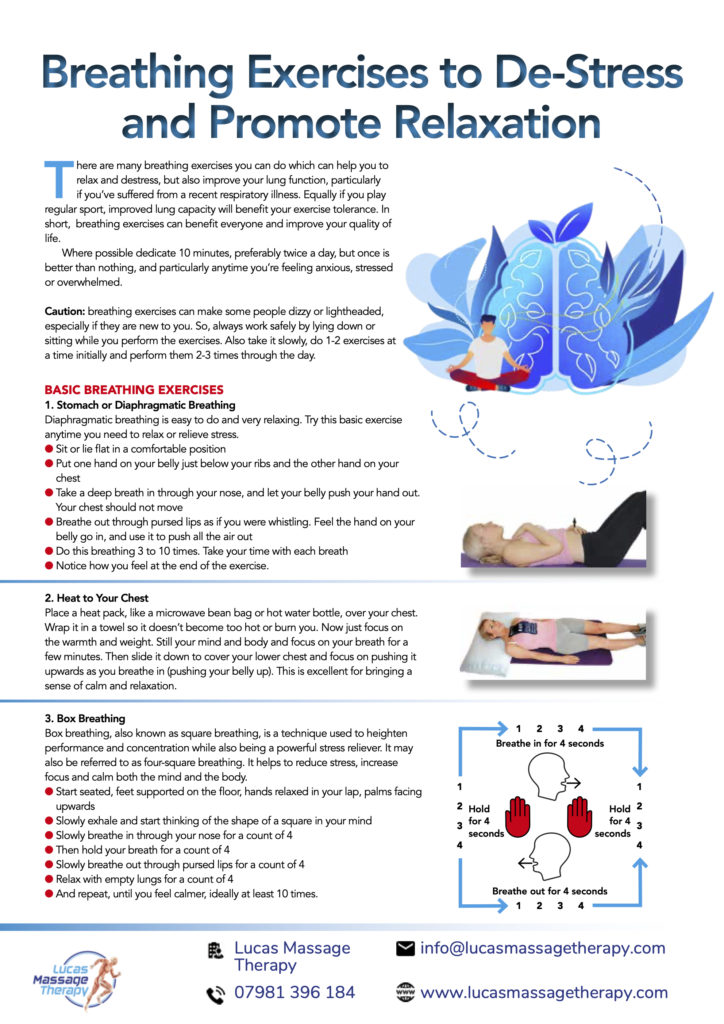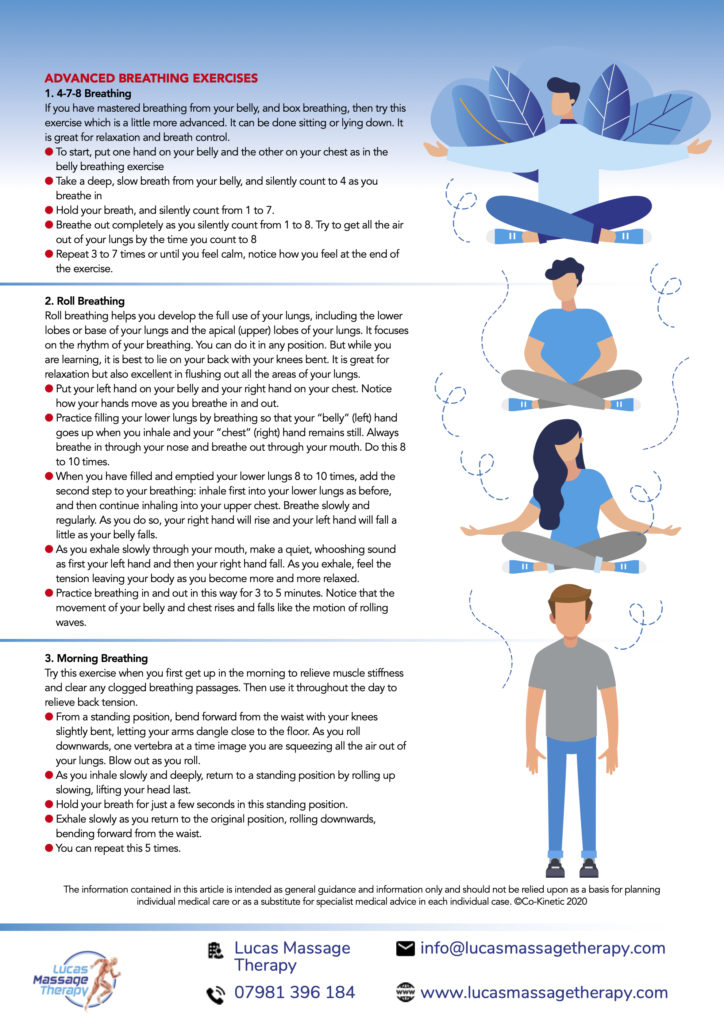Best Breathing Exercises to De-Stress
While we inhale and exhale effortlessly throughout the day, have you recently taken a moment to engage in deep breathing? Deep breathing is a simple and innate technique that can be used to address concerns such as stress, anxiety, pain, and high blood pressure, and even aid digestion. Typically, we don’t pay much attention to our breathing unless we become unwell, develop a respiratory condition, experience asthma, or face intense stress and anxiety.
However, when we deliberately take a deep breath or consciously control our breathing to alleviate anxiety, stress, or panic, it becomes an urgent and conscientious matter. Observe how you naturally breathe when you’re in a state of relaxation – before falling asleep, during a tranquil moment in your favourite armchair, or upon waking in the morning. Breathing exercises can provide relaxation benefits. Conversely, notice how either yourself or a friend’s breathing becomes strained, rapid, and shallow when experiencing anxiety, stress, or a panic attack. Best Breathing Exercises to De-Stress offers one of the most effective means to reduce stress within the body.
This is because deep breaths transmit a message to the brain, signalling it to relax and calm down. Consequently, the brain adjusts the autonomic nervous system, resulting in lowered blood pressure, heart rate, and breathing rate. Deep breathing also triggers the release of endorphins, our body’s natural feel-good hormones. Lung capacity refers to the total volume of air that our lungs can hold. As we age, starting from the mid-20s, lung capacity and function typically decline gradually over time.
Certain conditions like chronic obstructive pulmonary disease (COPD) and asthma can accelerate this decline, leading to breathing difficulties and breathlessness. Acute illnesses such as pneumonia or the more recent COVID-19 virus can have a notable impact on lung function, and recovery may require a prolonged period.
So, the way you breathe affects:
The entire physical being. Engaging in breathing techniques is an effective method to unwind, diminish strain, and alleviate stress. Your well-being. Mastering proper breathing and enhancing your lung capacity can enhance your ability to engage in physical activities and everyday tasks, as well as safeguard against illness by ensuring optimal ventilation and regular cleansing of your respiratory system. If you have recently been unwell, practising the best breathing exercises to de-stress will aid in your recuperation by ensuring there is no lingering mucus in your lungs and preventing any decline in pulmonary function.
Table of Contents
Best Breathing Exercises to De-Stress
The main theme of the best breathing exercises to de-stress is ‘out with the old, in with new’. Literally, that’s what breathing exercises do – clear out the stale air that may carry bugs, and mucus and breathe in new, fresh, oxygen-rich air. Whether you are healthy, have a chronic respiratory condition, tension headache or are recovering from an illness that affected your lungs, taking just a few moments each day to practice some deep breathing exercises can decrease stress, relax your mind and body, allow you to sleep better and exercise your lungs which will help in their recovery.
1. Improve the Physiology of Your Lungs
Breathing is effortless when your lungs are in good health. Your diaphragm takes charge, performing around 80% of the work by filling your lungs with a mixture of oxygen and other gases and then expelling waste gas through exhalation. This process is comparable to a screen door with a spring, autonomously opening and closing. Similar to the springiness of the door, your lungs possess elasticity. However, conditions like asthma, COPD, recurrent bouts of pneumonia, or severe respiratory illnesses can cause your lungs to lose their springiness.
They don’t fully recover, resulting in trapped air within the lungs. Over time, stagnant air accumulates, leaving less space for the diaphragm to contract and bring in fresh oxygen. As a result, other muscles in the neck, upper back, and chest are utilized, leading to shallow breathing. This leads to reduced oxygen levels and limited capacity for physical activity and daily tasks. The trapped stale air can also become a breeding ground for bacteria, increasing the risk of further illnesses.
Fortunately, breathing exercises can help maintain and enhance lung capacity, facilitating easier maintenance of healthy lungs and ensuring sufficient oxygen supply to the body. Similar to exercising to improve fitness or muscle strength, the respiratory system, being a large muscle, can be trained to enhance endurance and capacity. Here are the best breathing exercises to de-stress.

2. Improve the Quality of Your Life
Proper breathing is crucial for your overall health. These significant advantages are intended to inspire you to engage in deep breathing.
1. Natural painkiller
Deep breathing triggers the release of endorphins, which are natural painkillers and feel-good hormones produced by the body. An illustrative instance would be employing deep breathing techniques during labour to alleviate pain.
2. Improves blood flow
Taking deep breaths enhances blood circulation as the diaphragm’s upward and downward motion aids in eliminating toxins from the body, thereby facilitating improved blood flow.
3. Enhances energy levels
As blood flow is heightened, greater quantities of oxygen are infused into the bloodstream. This influx of oxygen leads to heightened energy levels.
4. Enhances body alignment
Surprisingly, incorrect breathing is closely connected to bad posture. Should you doubt this, attempt it firsthand. Make an effort to inhale deeply and observe how your body naturally aligns itself during the process. Maintaining a hunched and slouched posture with rounded shoulders greatly hampers the ability of the rib cage to fully expand and the lungs to fully open. Filling your lungs with air automatically prompts your spine to straighten.
5. Reduces inflammation
There is a common belief that diseases such as cancer typically develop in acidic bodies. It is suggested that deep breathing can help reduce the acidity and promote alkalinity. Stress, on the other hand, is known to elevate the acid levels in the body, whereas breathing techniques can help reduce stress and subsequently lower acidity.
6. It purifies the body by removing toxins.
Carbon dioxide is a naturally harmful byproduct that is eliminated from the body solely through respiration. However, when our respiratory system is impaired due to shallow breathing, the other mechanisms responsible for detoxification put in extra effort to remove this waste. Consequently, this can weaken our body and potentially result in the onset of illness.
7. It promotes the activation of the lymphatic system.
Shallow breathing can cause a slow lymphatic system, leading to inadequate detoxification. Proper lymph flow is achieved through deep breathing, enabling the body to function more effectively.
8. Enhances digestive function.
Taking deep breaths provides additional oxygen to all parts of your body, including your digestive system, enabling it to function more effectively. The enhanced circulation resulting from deep breathing also stimulates intestinal activity, leading to further improvements in overall digestion. Moreover, deep breathing promotes a more relaxed nervous system, thereby improving digestion further.
9. Mind and body can be relaxed by breathing.
When experiencing anger, tension, or fear, your muscles become tense and your breathing becomes rapid and shallow. This constriction of breathing occurs due to chronic stress, which results in the release of cortisol, a stress hormone. Cortisol can elevate heart rate, blood pressure, and blood sugar levels, while also impairing immune function and promoting weight gain. Deep breathing exercises can effectively alleviate these stress-induced effects by reducing cortisol levels and increasing the production of serotonin and other endorphins. Here are the Best Breathing Exercises to De-Stress.

FINAL TIPS FOR KEEPING YOUR LUNGS HEALTHY
Maintaining lung health is more effective than addressing issues afterwards, making prevention the preferred approach. To keep your lungs in good condition, follow these steps
- Stop smoking, and avoid second-hand smoke or environmental irritants.
- Consume foods that are abundant in antioxidants.
- Wearing a mask and practising safe social distancing measures are recommended to avoid coming into contact with bacteria or viruses.
- Adhere to stringent hygiene protocols by frequently washing your hands and remaining mindful of surfaces you come into contact with that might have been exposed to others.
- Stretch your muscles regularly.
- It may be wise to politely refuse to meet friends or family who have been unwell. Exercising some patience in delaying social interactions could potentially safeguard your well-being in the future.
- Obtain immunizations such as the influenza vaccine and the pneumococcal vaccine to mitigate the risk of respiratory infections and enhance lung well-being.
- Practice your Best Breathing Exercises to De-Stress daily.
- Increase your physical activity to enhance the proper functioning of your lungs.
- Enhance the quality of air indoors by employing indoor air filters and minimizing the presence of pollutants such as synthetic fragrances, mould, and dust. Refrain from excessive reliance on heating or air-conditioning systems that recirculate air, and instead, when feasible, opt for occasional fresh air circulation.
Best Breathing Exercises to De-Stress. BASIC BREATHING EXERCISES.
Breathing exercises for anxiety

Best Breathing Exercises to De-Stress. ADVANCED BREATHING TECHNIQUES.


